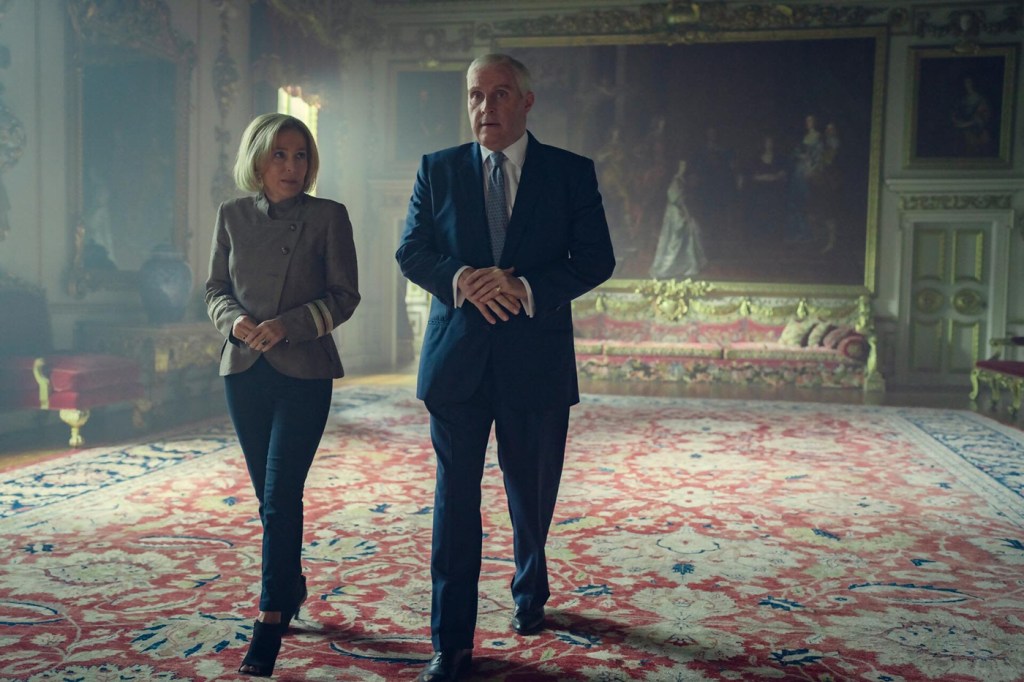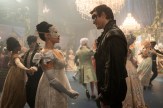Netflix released a movie about Prince Andrew’s disastrous 2019 BBC interview. Here’s how his tell-all backfired
Prince Andrew stepped back from royal duties after the interview. Netflix’s new movie “Scoop” looks at how the interview came to be and what happened.

Prince Andrew’s friendship with financier Jeffrey Epstein raised eyebrows well before 2019. The royal, who is the younger brother to King Charles III, was criticized for his relationship back in 2011 after Epstein was convicted of sex trafficking.
But a 2019 interview on the BBC’s “Newsnight” program about his relationship with the convicted sex trafficker prompted Andrew to step back from his public duties after the tell-all royally backfired.
On April 5, Netflix released a movie, “Scoop,” which is a dramatization of the interview and how “Newsnight” got it after years of silence from Andrew. But what really happened in the interview and where did it go wrong?
According to Peter Mancusi, an associate teaching professor at Northeastern University with a background in public relations, the prince spent too much time in the interview making excuses and not enough time acknowledging the damage done by Epstein.
“(Tell-all interviews) have to be done strategically and in a way that you’re pretty sure you’re going to come out of it better than when you went in,” Mancusi said. “He made it much worse. He gave more oxygen to that story than he ever dreamed of giving to that story.”
In the interview, the prince gave bizarre responses to questions about his relationship with Epstein. He claimed he did not regret his friendship with the financier and that when the two met up in New York in 2010, it was so Andrew could end their friendship in person “to show leadership.”
Featured Posts
The interviewer also brought up several allegations made by Virginia Giuffre, a woman who said Epstein allegedly sex trafficked her for Andrew. Giuffre made several specific allegations against Andrew, including that he was sweating heavily during one of their encounters.
In response, Andrew said this was impossible because it was “almost impossible” for him to sweat at that time due to an overdose of adrenaline he experienced during the Falklands War. He claimed a photo of him and Giuffre allegedly taken in London was a fake because he wasn’t wearing a suit and tie, which is what he wears when he goes out in London. He also claimed he was at a Pizza Express in Woking on the day the encounter allegedly happened.
“It raised more questions and concerns than it answered … about his involvement with Epstein,” said Michelle Carr, a principal lecturer at Northeastern University who teaches a Dialogues course on British culture. “It only furthered people’s interest in the story.”
This is not the first time a member of the royal family has given a tell-all interview. Princess Diana did an interview with the BBC in 1995 in which she revealed her then-husband’s relationship with Camilla Parker-Bowles. Prince Harry and his wife, Meghan Markle, did one with Oprah Winfrey in 2021 about what drove them to leave the royal family.
“From a royal perspective, generally speaking, these types of interviews are relatively frowned upon as far as the institution is concerned because it brings to light things they don’t necessarily want brought to light,” Carr said. “But it also exposes them to being real and to maybe say things they wouldn’t normally say.”
But these interviews didn’t backfire in the way Andrew’s did. After the interview, Andrew stepped back from public duties and resigned from all public roles. He’s also lost many of his royal privileges, including his police protection.
Part of the problem, Carr said, was the severity of the issue. While the British royal family is no stranger to controversy, the allegations against Andrew were criminal.
On top of this, Mancusi said the lack of remorse the prince showed made a bad situation even worse. Andrew could and should have used the interview to apologize for his relationship with Epstein and acknowledge his victims while also denying his involvement, Mancusi added.
Instead, the prince was defensive during the interview, a stance that ultimately hurt his cause.
“There’s a way to not admit to anything, but also to express empathy for the victims,” Mancusi said. “He did none of that, and I think that’s what people really noticed.”











